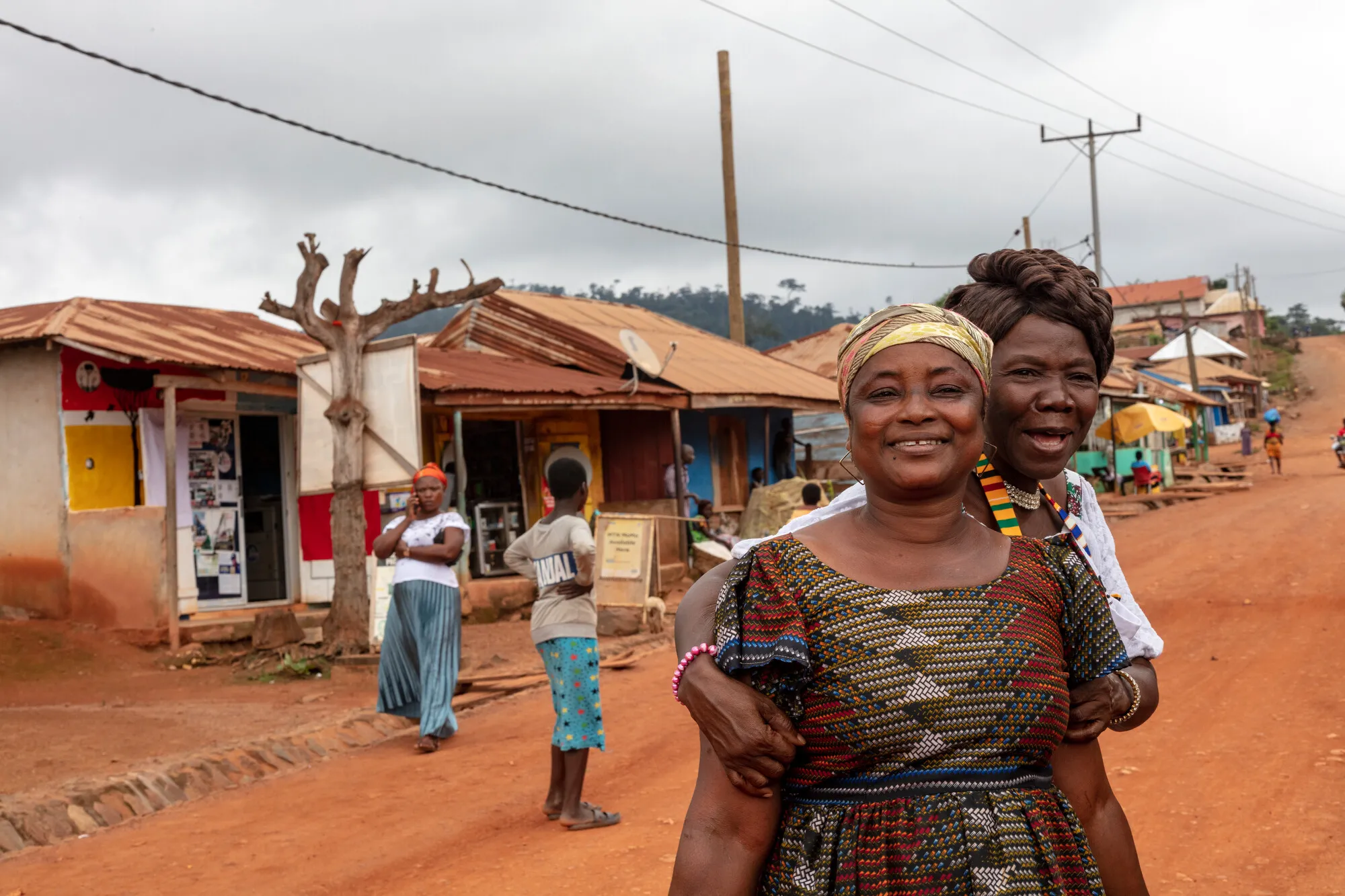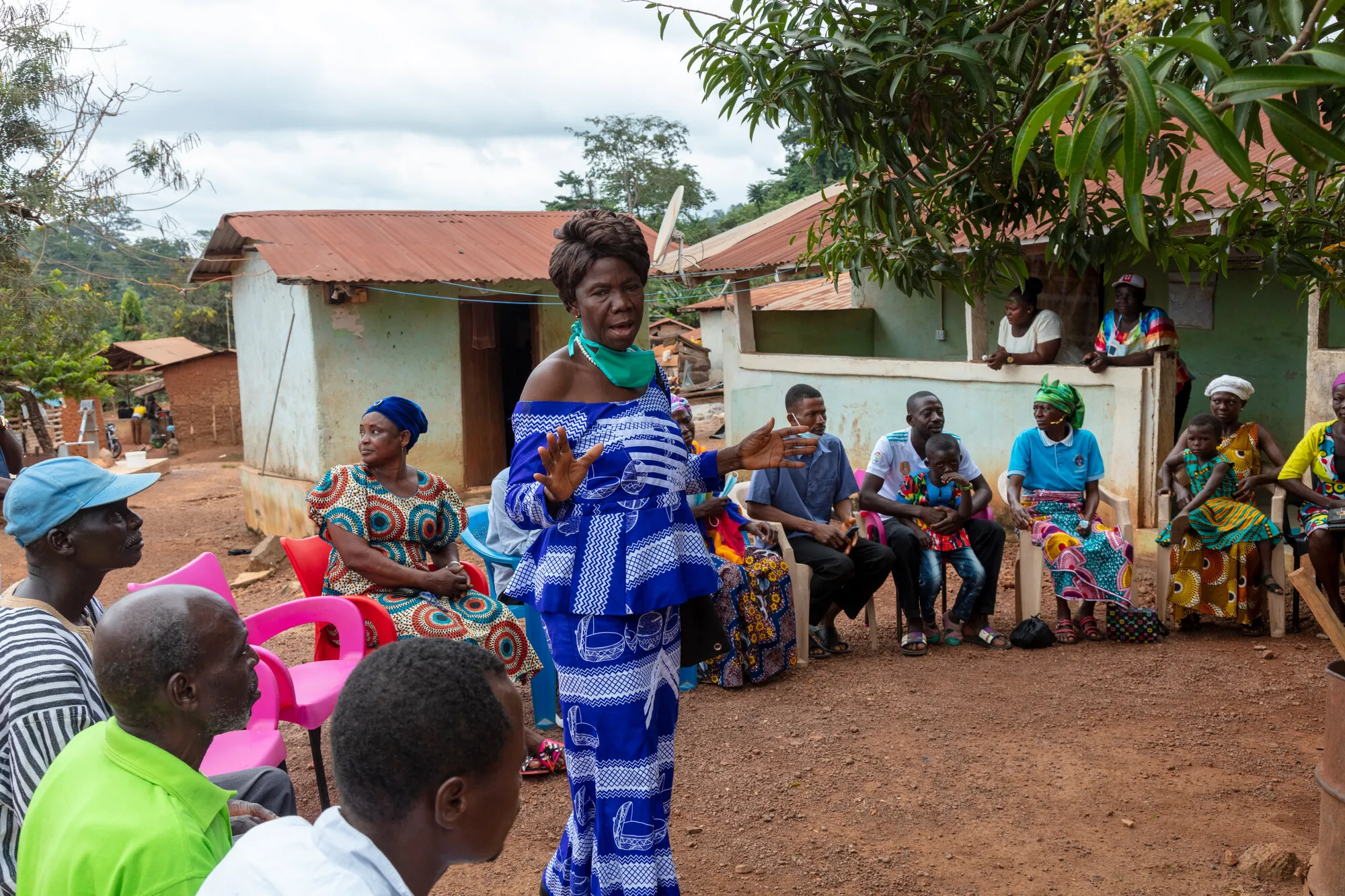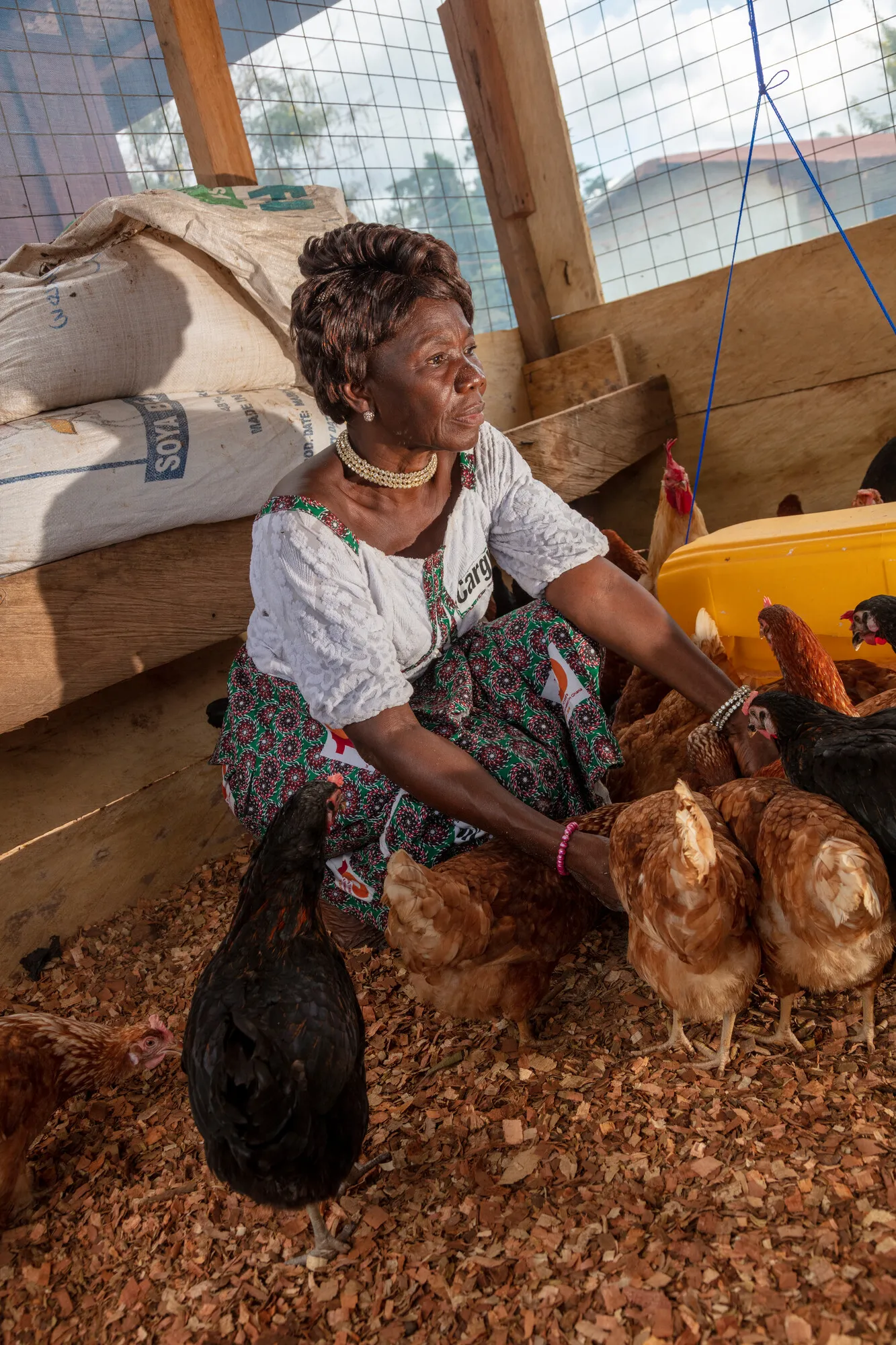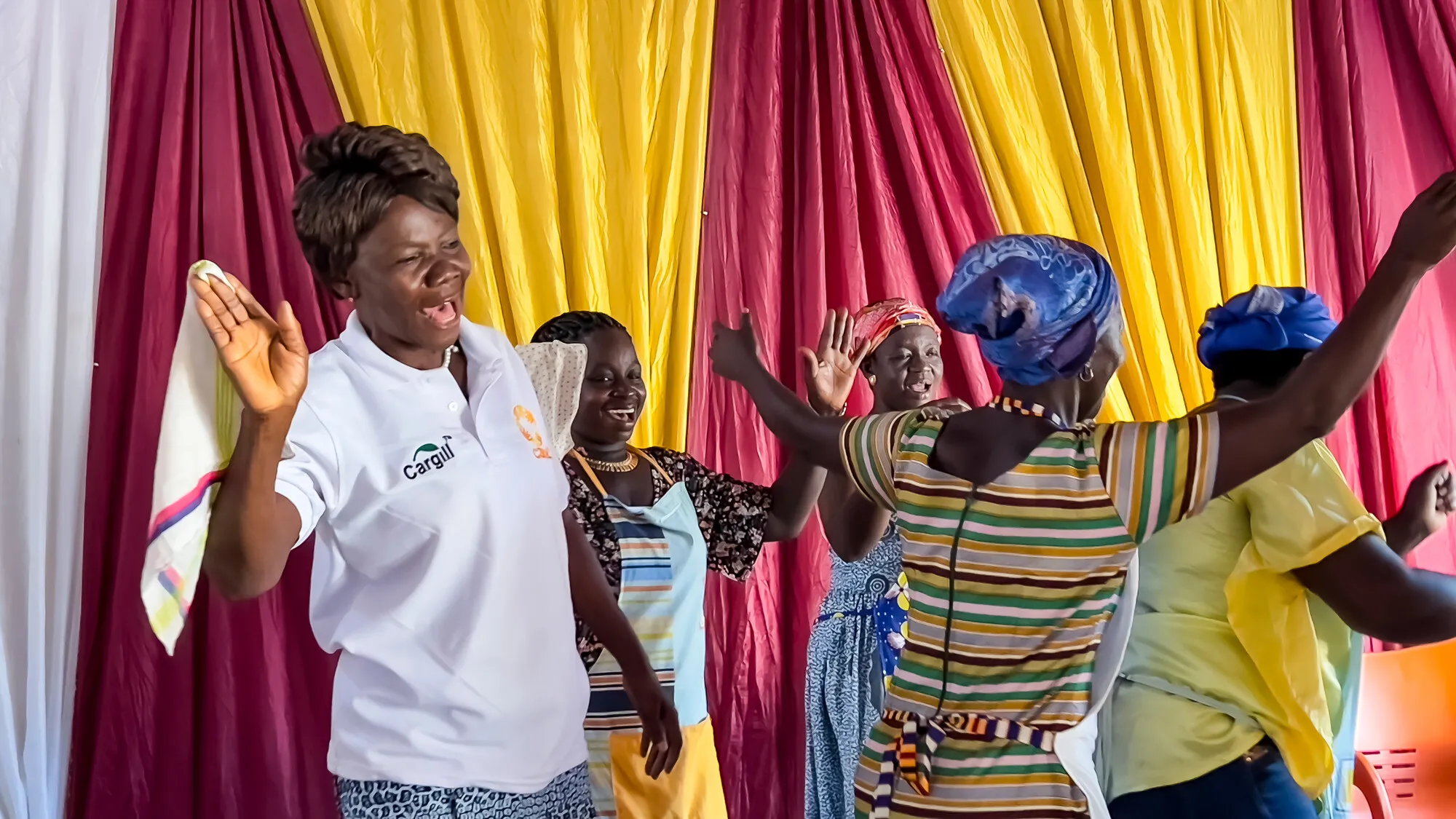“If there is food in the house, then everybody is happy. If there is no food in the house, then your husband is angry. No one is happy. To me food is happiness, and it is security.”
Over the years living in Larwehkrom, Barbara has seen how precarious this security can be.
According to the United Nations, Ghana’s population already had a 5.6% prevalence of severe hunger and a 36.6% prevalence of moderate or severe food insecurity in 2020.
And that was before the massive disruptions to global food systems from the war in Ukraine hit even small farming communities like Barbara’s. Now, as many of the small farmers prepare the soil for the upcoming season, there is less fertilizer available, and the prices for basic supplies are rising. National inflation is nearly 40%, and the price of fuel and basic staples like bread have more than doubled.
While no one could have predicted this exact convergence of disruptions for Ghana’s food systems, Barbara had been working for the past few years with CARE to make sure the happiness, joy, and security that comes from food in the home would be as stable and resilient as possible when crisis came.




